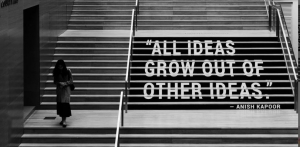A serendipitous viewing of this fascinating debate between Jonathan Sachs and Jonathan Haidt led me to pursue the evolving change in communication habits which influence our contemporary value systems. The subject addressed by the two eloquent debaters examined the The Moral Dilemmas Created by Today’s Social Media.
Electronic Media
“Electronic media has not only linked us to many more people it has divorced verbal communication from human presence,” said Rabbi Sachs. He went on to reference the anthropological work of Bronowski who did research with the Trobriand Islanders at the beginning of the 20th century. His observation drew attention to the profound fact that islanders’ communication was more about bonding than the exchange of information. An acute reminder of the change of emphasis found within today’s society often billed as the Information Age.
Tablet Magazine
Soon after watching this discussion, my inbox received further information from Tablet Magazine of Haidt’s work. When listening to his discussion with Rabbi Sachs, I had assumed he was a moral philosopher. However, I was soon to learn that he is not only an academic Social Psychologist but is very actively promoting the introspection of changing social norms which he considers a danger to western liberal thought.
I was fascinated to learn about the work he is doing on American University Campuses. These are the very space which should be a bastion of free speech. However, they very often become a place where visitors who promote unwelcome ideas are not allowed to express their views.
Asteroid Club
Have you heard of an Asteroid Club? Whether it is a friend with whom you have a clash of values, a co-worker who views life from a different perspective or a friend with a dissimilar viewpoint, membership of this club will guide you on how to go about creating a safe space for a positive discussion. Meetings under the auspices of the Asteroid Club are conducted with specific guide lines. The aim is to enrich one’s resources and perspectives on current controversial subjects be they politics, religion or sexual orientation.
Certain guidelines have been suggested to assist the discussion when people with varying outlooks engage in dialogue. Members are made aware of the evolutionary predisposition of humanity to form groups of like minded people. Contributors are made aware that the aim of the discussion is not to convert others to their side, but rather to widen their knowledge of different points of view
While this social experiment would start with a core group of 8 – 10 people who represent different viewpoints, as the group develops the numbers of participants may grow. The discussants are encouraged to provide food and drink as a lubricant for social interactions. So if you believe that civic discourse should be more open than it is today, you can form your own Asteroids Club!
Heterodox Academy
Another practical initiative initiated by Jonathan Haidt, is his Heterodox Academy which is a collaborative of more than 2500 professors, administrators and graduate students who are committed to promoting open inquiry, viewpoint diversity and constructive disagreement in institutions of higher learning.
It is felt that in many fields of research, important question and ideas may be overlooked because of the traditional perspective of that particular institution. The academics who participate in the Heterodox Academy are attempting to regain the traditional open debate, which ideally should take place in any institution of higher learning.
Freedom of Expression
Many students on American university campuses complain today that they are frightened to make their voices heard, thus undermining the most essential raison d’etre of this learning establishment. Even administrators and staff are censored regarding the views they can express. The retention of viewpoint diversity needs to be strictly guarded at all institutions of higher learning
OpenMind
OpenMind is a psychology-based educational platform designed to depolarize campuses, companies, organizations, and communities. With this initiative, Haidt and his colleagues foster intellectual humility and mutual understanding. At the same time, students are equipped with the essential cognitive skills to strengthen their ability to engage constructively across differences.
Concluding Thoughts
I have a strong belief that in everyday life the mutual exchange of opinions acts as an essential check on our own personal growth, ensuring we do not become entrenched in outmoded beliefs despite the changes taking place in the world around us. We are helped to see things from the standpoint of the other, thus widening our vision.


